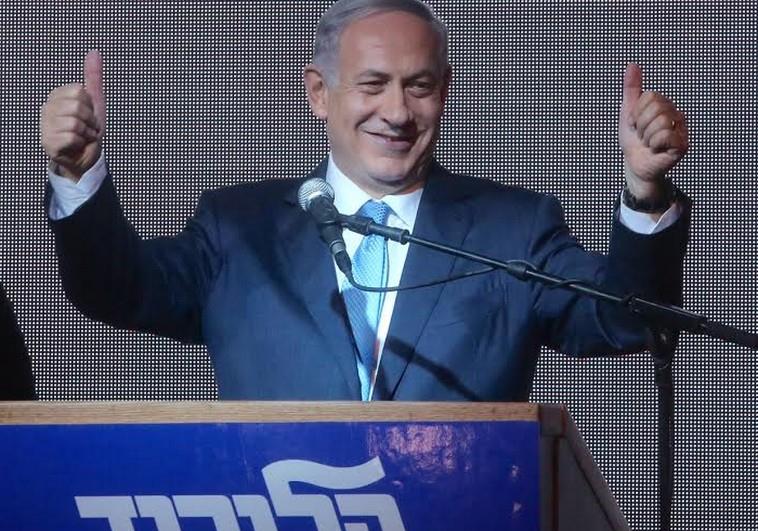US may withdraw support for Israel at Security Council
By HERB KEINON, MICHAEL WILNER, TOVAH LAZAROFF/
03/19/2015
The US is reconsidering its staunch support of Israel at the United Nations and has not automatically accepted Prime Minister Benjamin Netanyahu’s statement to the American media affirming his support of two states for two peoples after pre-election comments that appeared to reject it.
“I never retracted my speech in Bar-Ilan University six years ago calling for a demilitarized Palestinian state that recognized the Jewish state,” Netanyahu said in an interview with MSNBC’s Andrea Mitchell. “I want a sustainable peaceful two-state solution,” he said. “But for that, circumstances have to change.”
Two days earlier, Netanyahu told the Israeli media that a Palestinian state would not be created during his premiership and warned against Arab voters heading to the polls in droves. But on Thursday, with his job safely back in his hands, Netanyahu took to the US airwaves to assuage White House concerns he has reneged on the peace process.
White House press secretary Josh Earnest said that, despite Netanyahu’s American media interviews, the US will “still evaluate” its policy on the Middle East peace process.
With a sharper tone since first reacting to Israel’s election results on Wednesday, Earnest characterized Netanyahu’s claim that Arabs were voting “in droves” against him as a “cynical Election Day tactic.”
Obama administration officials hinted broadly that the US may – for the first time – back a UN Security Council resolution laying down the principles for a two-state solution, or support a Palestinian bid to join the UN as a full member. The Palestinians have sought a path to statehood outside negotiations with Israel through the UN, but longstanding US policy has been to oppose unilateral actions by either side.
US State Department spokeswoman Jen Psaki said that, while the US remains committed to opposing an unfair or biased resolution on Israel, not all resolutions meet that criteria.
“There are a range of options in the UN Security Council,” she said. “I am not going to prejudge it further. What we will look at is the content of a resolution.”
The prime minister’s pre-election comments, Earnest said, called into question his commitment to the pursuit of peace and have forced the US government to reassess its stance.
“What is clear is that in the context of the campaign and while he was the sitting prime minister of Israel he walked back from commitments that Israel had previously made to a two state solution,” Earnest said.
The Israeli-US Strategic Partnership Act that passed the House of Representatives last December, identified a two-state solution as a US goal to resolve the conflict with the Palestinians, Earnest said.
”We believe [Netanyahu] changed his position,” Psaki said. “He was the prime minister three days ago, so certainly we can’t forget about those comments.” She added that “it’s not about showing our displeasure. It’s about finding a way forward.”
The White House said President Barack Obama and his administration would be carefully watching the actions of Netanyahu, his party, and his coalition moving forward.
But the State Department further warned that, despite its reassessment, it still supports Palestinian cooperation with the Israelis on security matters.
Netanyahu told MSNBC that, while he has not backtracked on his Bar-Ilan University speech, the reality has changed. He blamed Palestinian Authority President Mahmoud Abbas for being responsible for part of that change, saying that he refuses to recognize Israel as a Jewish state, and has made a pact with Hamas that calls for Israel’s destruction.
He also said that all territory vacated in the Middle East is taken over by Islamist forces.
“If you want to get peace, you’ve got to get the Palestinian leadership to abandon their pact with Hamas and engage in genuine negotiations with Israel for an achievable peace,” he said. “We have to also make sure that we don’t have ISIS coming in to that territory. It’s only two dozen miles away from our border.”
In the interview Netanyahu spoke of the need for him to work together with Obama, saying there is an “unbreakable bond between Israel and the United States.”
Asked about his comments on Election Day, when he urged his supporters to vote because Arab voters were going to the polls en masse, Netanyahu said the right of all to vote in Israel is “sacrosanct.” He said his words referred to a “massive foreign- funded effort” to try to get out votes for a specific party (the Joint List), which he called “an amalgamation of Islamists and other anti-Israel groups.”
“I said when that happens, make sure we get out our vote,” he said. “I wasn’t trying to suppress a vote, I was trying to get something to counter a foreign- funded effort to get votes that are intended to topple my party, and I was calling on our voters to come out.”
Netanyahu, in his first interview since the election, said while he and Obama may have their differences, “we have so many things that unite us. We have a situation in the Middle East that is very dangerous and presents a common challenge to us.”
The prime minister said that although he has not yet spoken to Obama, he is sure he will soon.
“We work together. We have to,” he said. “We have our differences.
By coming to the US [to speak to Congress] I did not mean any disrespect or attempt at partisanship, but I was merely speaking of something that I view could endanger the survival of Israel.”
Netanyahu said there are many areas where the US and Israel must work together.
“We are allies. We have to consult each other, not have fiats or unilateral impositions, but negotiated peace with our neighbors and support between allies. America has no greater ally than Israel, and Israel has no greater ally than the United States.”
Zionist Union MK Tzipi Livni said Thursday it was sad that “after another zigzag from Netanyahu on two states, there is no one left in the world who believes the prime minister of Israel.”
No Likud MK was willing to criticize Netanyahu Thursday for his two-state endorsement, despite many being opposed to such a move.
Meanwhile, US administration officials were quoted in The New York Times on Thursday saying that Obama – following Netanyahu’s reelection – will not “waste his time” on the managing Israel-US relations, delegating it instead to Secretary of State John Kerry.
The Times quoted a senior White House official as saying that the US position has been to support direct negotiations between the Israelis and the Palestinians.
“We are now in a reality where the Israeli government no longer supports direct negotiations,” he said. “Therefore we clearly have to factor that into our decisions going forward.”
While Obama has not yet called Netanyahu to congratulate him on his victory, the premier did receive calls on Thursday from German Chancellor Angela Merkel and Australian Prime Minister Tony Abbott.
He also received congratulatory messages from the leaders of the Netherlands, Romania, and the Czech Republic.
White House officials have been in touch with their Israeli counterparts to discuss a phone call between Obama and Netanyahu, but no date has been set for a future meeting.
The US continues to be committed to the kind of military, intelligence, and security cooperation that has characterized US and Israel for generations, Earnest said.
Gil Hoffman contributed to this report.


















